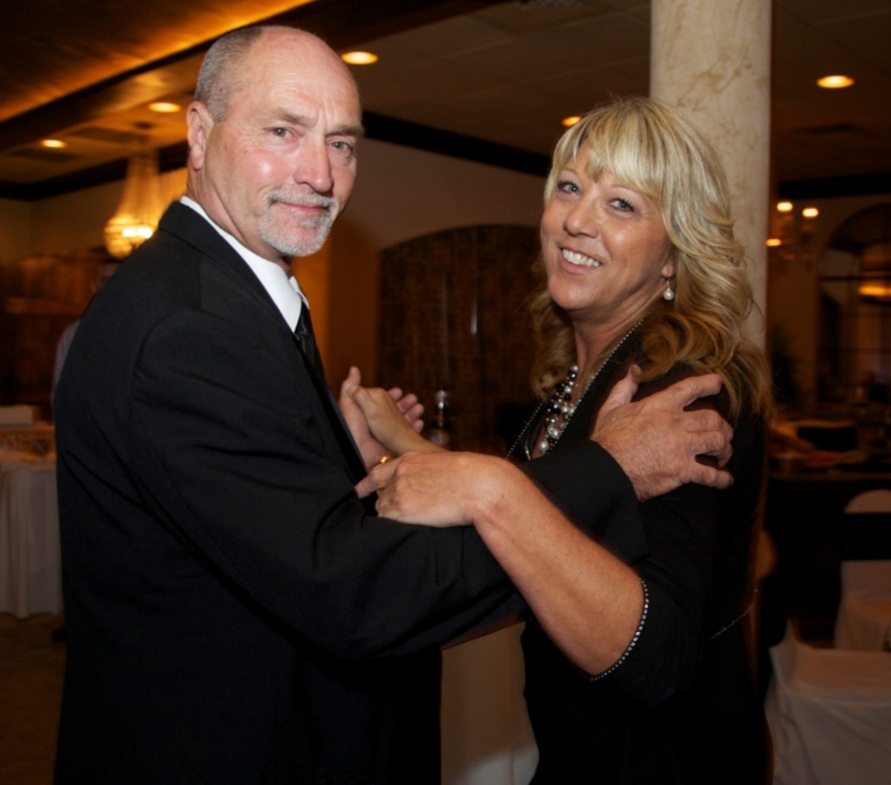
Editor’s note: This story is part of a series about Oklahomans who have died in the coronavirus pandemic. Read the stories of other Oklahomans here. Have you lost a loved one to COVID-19? Help us tell their story.
Michael Kevin Dansby loved hanging out with friends at his automotive shop, working on and collecting hot rods, watching NASCAR and riding Harley Davidson motorcycles.
But most of all, Dansby loved his family, which included three sons and three daughters, along with many grandchildren and great-grandchildren.
“We were his babies, his kids, his everything,” said daughter Lacey Bradley of Choctaw. “That was his deal, that was his life, us kids.”
Dansby was born May 22, 1951, in Oklahoma City. He attended welding school shortly after graduating from Moore High School.
In his younger days Dansby would race dragsters at the Ardmore Speedway. He eventually opened his own towing and mechanic shop — D&D Auto and Wrecker Service.
Every Sunday, Dansby would gather with family to have lunch at his mother’s house.
“Sundays were a very special time for our family because we would go to his mother’s and eat every single Sunday for lunch,” Bradley said. “And that’s what we did growing up. So even now as an adult with my kids, we would go on Sundays to my grandparents to eat with my grandparents and my dad.”
Dansby sometimes appeared to have a gruff personality, but he was actually a warm, caring man with a quick wit and sense of humor.

“You couldn’t be around him without laughing,” Bradley said. “He was literally always telling a joke.”
Dansby fell ill with COVID-19 in early July 2020, but went undiagnosed for days.
Bradley went by Danby’s house on July 3, 2020, to check on her father. He said he wasn’t feeling well, but declined to go to the doctor.
On Independence Day, he visited with family members at a get-together, where he played with his grandchildren, making them laugh with silly faces and a claw-hand. The family watched fireworks together. Dansby, who was still not feeling well, agreed to stay the night at one of his daughters’ houses.
“I did not know at the time he was sitting there dying,” Bradley said. “If I would have known that, this wouldn’t have happened.”
The next day, Dansby was feeling worse. He wouldn’t eat or drink, and he didn’t seem to be himself.
“He was acting really strange,” Bradley said. “You could tell it was affecting him mentally. He just wasn’t himself.”
It took most of Dansby’s children to convince him to go to the hospital, where he tested positive for COVID and was placed in a special unit.
“And that was it,” Bradley said. “We never saw him again.”

There were times when the family could speak to Dansby on the phone, but he had difficulty speaking coherently. Dansby’s lungs collapsed on July 15. Physicians were able to revive him and scheduled a Zoom meeting with the family.
The call didn’t go as planned. The family was unsure whether Dansby could hear them, and the conversation abruptly ended when Dansby’s device lost power.
“We just said prayers and told him we loved him and that it was OK if he needed to go,” Bradley said. “He fought until we were there to say goodbye.”
Dansby died about an hour after the Zoom call, she said. He was 69.
“He was supposed to have more years with us,” Bradley said.
Almost a year after Dansby’s death, Bradley’s grandmother was put in a COVID ward, though she also had other lung issues. By that time, Bradley said, the wards were designed with glass partitions where the family could see their loved ones in person, something she and the rest of the family did not get to experience with her father.
“Some of that has come a long way,” Bradley said. “I’m so glad they get to do that at least through the glass and kind of be there and be an advocate for that person in the hospital, but it’s awful it’s still happening. People just don’t think it is.”

